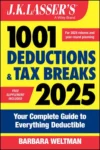Substantiation Needed for Charitable Out-of-Pocket Expenses of $250 or More
Cash donations of $250 or more to a qualified charitable are not deductible without meeting substantiation requirements. This means obtaining a contemporaneous written acknowledgment from the charity. The Tax Court has now said that this substantiation requirement applies to out-of-pocket expenses incurred for the benefit of a charity.
The case involved a woman who provided foster care for Fix Our Ferals (FOF), an organization that spays and neuters feral cats and then returns them to the wild or places them in foster homes. She incurred expenses to care for the cats, as well as to repair her wet/dry vacuum that she used to clean her home and pay membership dues at Costco.
The Tax Court allowed some of her deductions and disallowed others. To deduct out-of-pocket expenses, the costs must be incurred “incident to the rendition of services” to a charitable organization and must be directly related, and solely attributable, to those services. The costs of repairing the vacuum and joining Costco did not meet these criteria.
Of the expenses that did qualify, such as veterinary expenses and pet supplies, the Tax Court allowed only those costs under $250 to be deductible (she originally deducted over $12,000 in out-of-pocket expenses). In the court’s view, expenses of $250 or more must meet the substantiation requirements in the regulations. For substantiation purposes, there are only two categories of donations: cash and property. Since the out-of-pocket expenses are not property, they must be treated like cash. The regulations for cash donations mandate obtaining of contemporaneous written acknowledgment from the charity. While she had records to prove she did incur the expenses, she did not obtain a letter from the charity and could not deduct her expenses over $249.
Source: Van Dusen, 136 TC No 25
Passive activity loss rules
Rules that limit the deduction of losses from passive activities to income from other passive activities. Passive activities include investment rental operations or businesses in which you do not materially participate.



